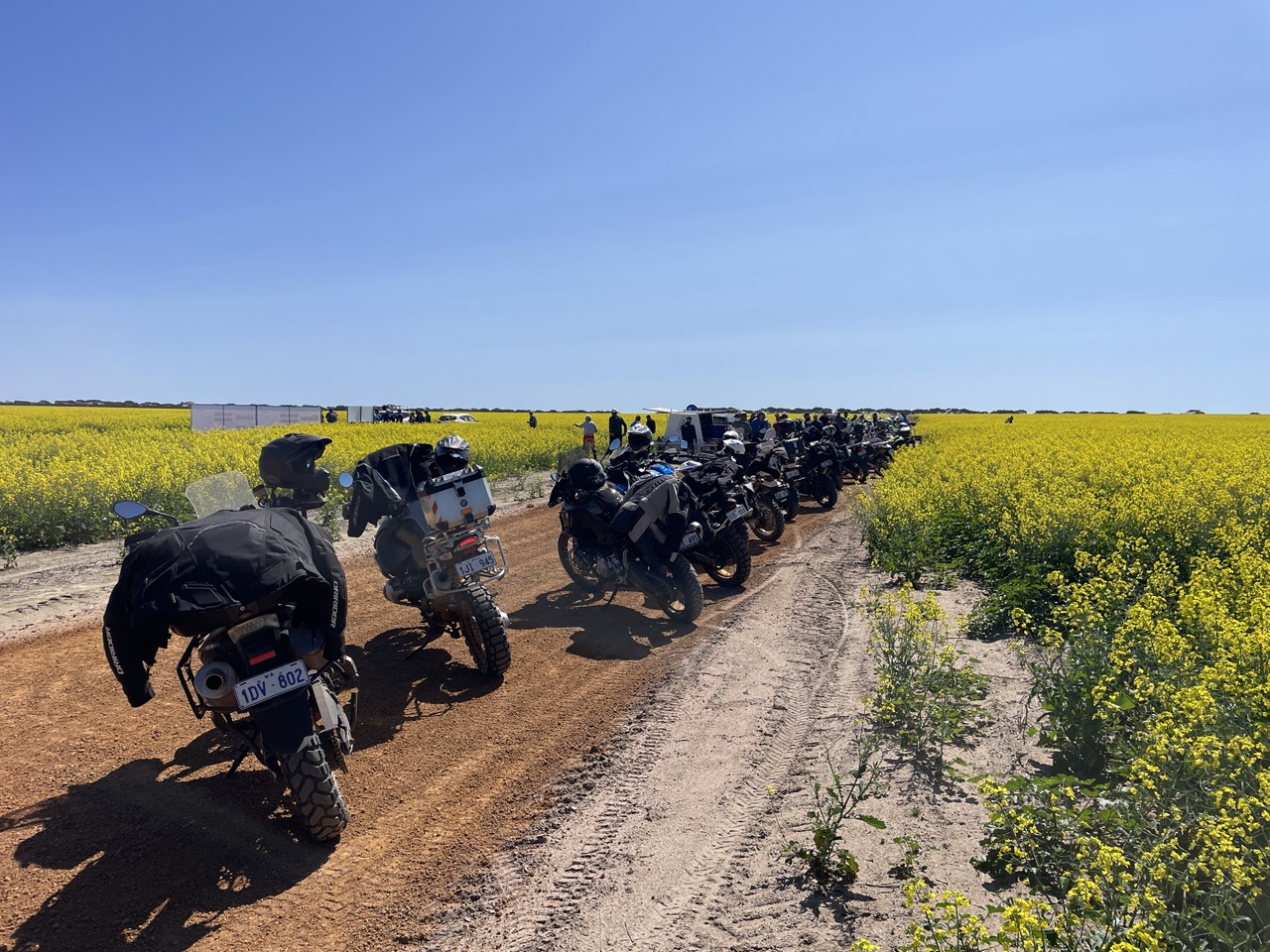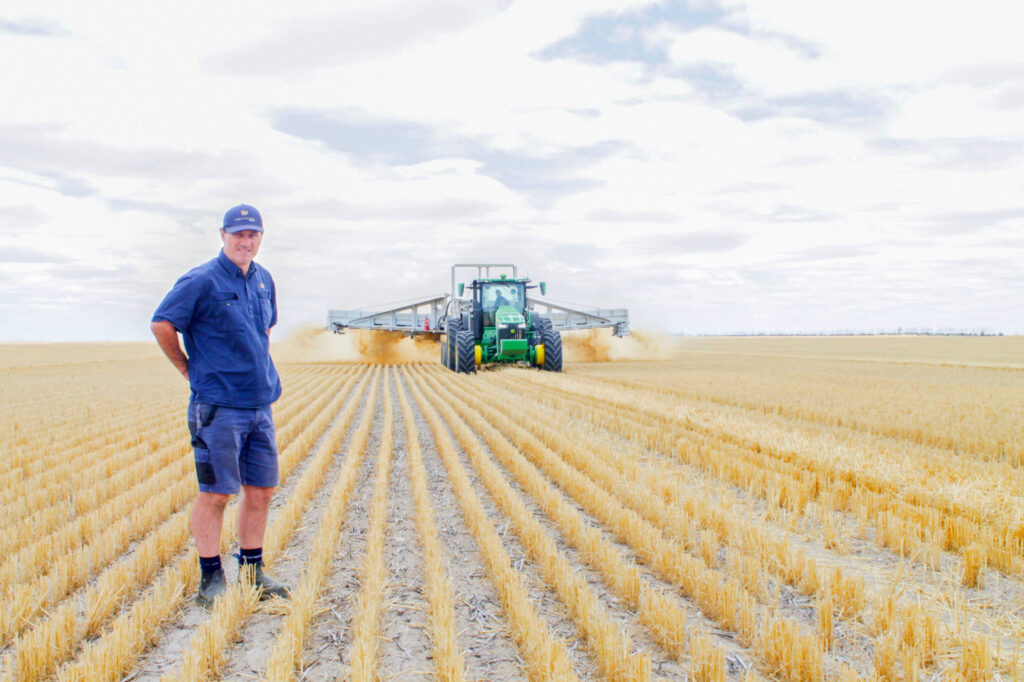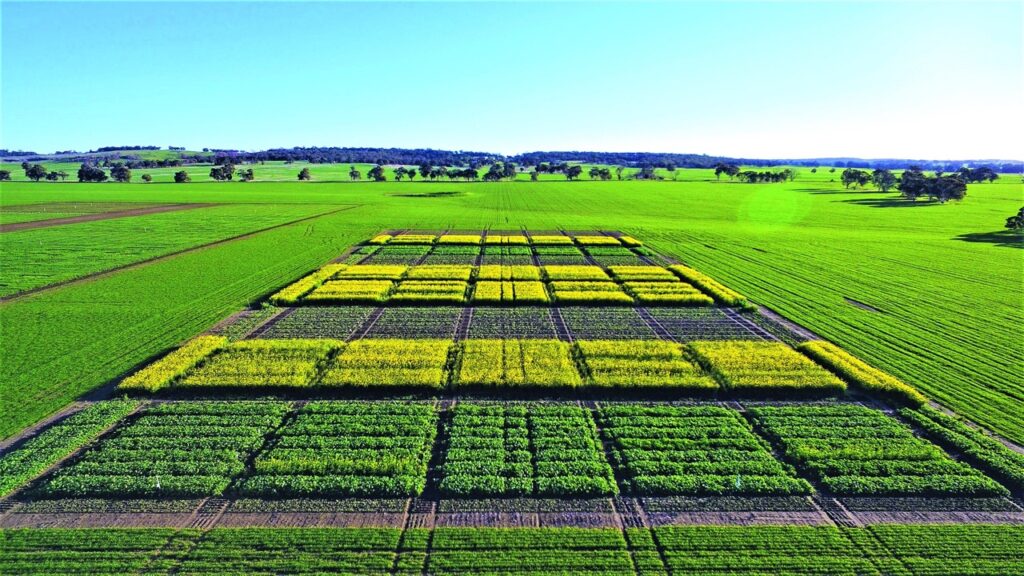Rider numbers were the biggest ever at the annual ADAMA 2-Wheel Trial Tour this year, which included an inspection of herbicide tank mixtures containing Tenet in canola. Photos: ADAMA
The Esperance region has long been a fascination for many agricultural enthusiasts and it proved so again during WA’s annual motorbike crop trials tour recently.
The ADAMA 2-Wheel Trial Tour attracted its biggest ever rider numbers from all points of the agricultural region, bringing together growers, farm consultants and other industry colleagues to explore the diversity of the area both inland and along the coastline.
Numerous riders added to the event’s longer format this year with visits to areas including the Goldfields, and the group enjoyed magnificent riding weather and appreciated strong community support, including at its “base camp” at the Esperance Bay Turf Club.
The event highlighted a range of research and industry development throughout the region, as well as local activities and popular sites.
The performance of ADAMA Australia’s Tenet pre-emergent and early post-emergent canola herbicide in mixes with glyphosate, glufosinate and clethodim was viewed in InVigor LR canola.
WA Market Development Manager Bevan Addison said the trial showed the value of stacking multiple herbicide modes of action for maximum weed control and resistance management benefits.
He said growers had the opportunity to mix Tenet with either of the herbicides to achieve the best outcome for their particular situation.
“Across many of our trials over multiple sites and seasons, the addition of Tenet to any of the herbicides, or to a tank-mix combination, has provided improved initial and residual weed control, resulting in a reduced grass weed burden at the end of the year,” Bevan said.
A visit to the Esperance Downs Research Station compared traditional and modern farming practices with DPIRD research scientist Tom Edwards, highlighting the significant gains made with latest systems and, hence, the importance of industry strategy development for the area.
Bevan said adoption of various soil amelioration techniques such as claying and use of knife point/press wheel systems and products like soil wetters had advanced crop establishment enormously compared with previous times and contributed to improved crop yields over recent decades.
“Where non-wetting soils, potential for wind blow and poor weed control were all limiting crop production in the area, these have largely all been overcome, resulting in high production that we now see across the various areas around Esperance,” he said.
The impact of some of the latest practices on herbicide performance also was discussed at the station.

At another major development site, long-term local industry identity Andrew Heinrich, Pacific Seeds, updated the group on some of the latest canola varieties suiting farming systems in the area before visits to several growers in the region.
Rohan Marold took the group through some of the systems he is using to overcome issues associated with high rainfall waterlogging country, including tile drainage and drones to carry out input applications over wet areas.
Sam and John Fetherstonhaugh discussed returning tree farming country back to agricultural production, while standing in front of a barley crop that has potential to achieve 5t/ha crop yields in their first year.

Scott Wandel highlighted farming in the lower rainfall areas north-east of Esperance, where lentils and cereals are the key drivers of the family’s cropping enterprise and they have established an on-farm workers village to successfully attract staff. The Wandels also have a beef property near the coast, where digital collars and virtual monitors are being used to monitor cattle movements.
Ash Reichstein and his wife, Megan Mcdowall, also updated the group on their farming operation and some of the activities and projects being undertaken by the local Mt Burdett Foundation, the concept of Ash’s late brother, Chris.
Bevan said other research taken in by the group included Field Applied Research (FAR) Australia’s Hyper Yielding Crops site, where Managing Director Nick Poole discussed several projects, as well as a look at the growing problem of red-legged earth mite (RLEM) resistance in the area and its control in canola with Clarke and Stokes Agriservices Agronomist Lucy Burrows.
Bevan said across many areas of WA, RLEM had developed resistance to synthetic pyrethroid and/or organophosphate insecticides; it had caused havoc in canola crops in recent years; and concerns had only heightened since the chlorpyrifos label review and loss of this versatile product from control programs.

He said RLEM was seldom fully controlled in cereal crops within rotations and a targeted approach was required to reduce numbers and help ease the pressure in following canola crops.
“Timerite sprays have historically been carried out in pastures before growing canola, and grazing also can help, but we need to improve control in the cereal phases as well. With less livestock and pasture in the system, more growers are planting canola on cereal stubbles that have diapause eggs from heavy RLEM infestations in the previous years.”
Lucy showcased the performance of ADAMA Australia’s Receptor insecticide against a resistant RLEM population in canola.
Bevan said Receptor was a novel Group 12A insecticide with no known resistance and could help growers where these issues were emerging, and now within different phases of their crop rotations.
“Receptor is currently registered for use against RLEM in canola, but also has recently gained permit for use in cereals and grain legumes,” he said.
“It mixes well with many herbicides, so can be applied with a range of products to help achieve early season control of RLEM.”
The 2024 motorbike trials event concluded with a tour of Lucky Bay Brewing with Nigel Metz, who has a strong rural background and highlighted the brewery’s use of local grain and its contribution to the area’s tourism.




